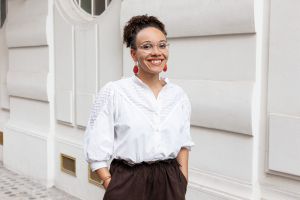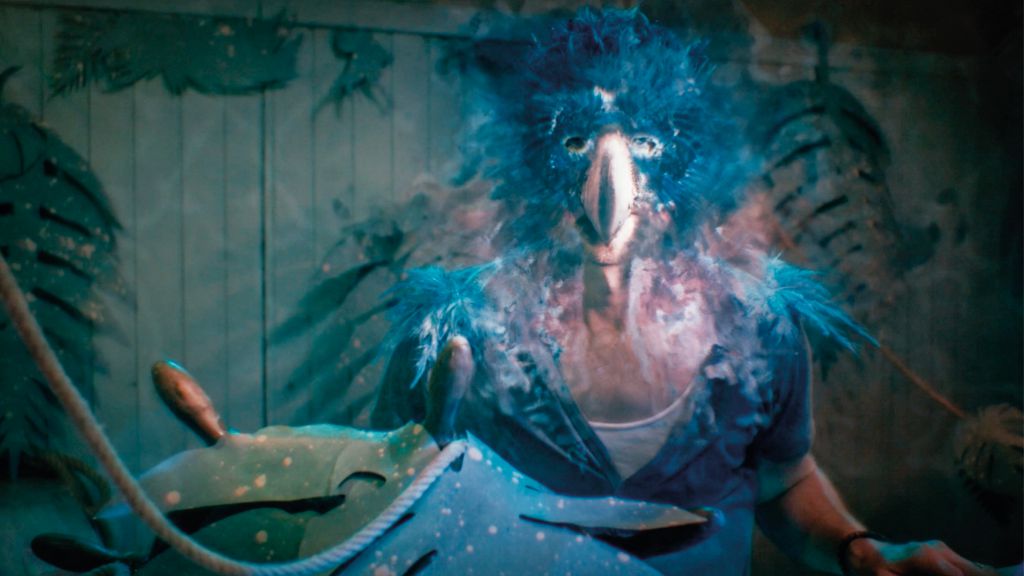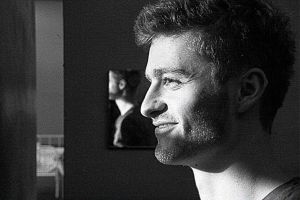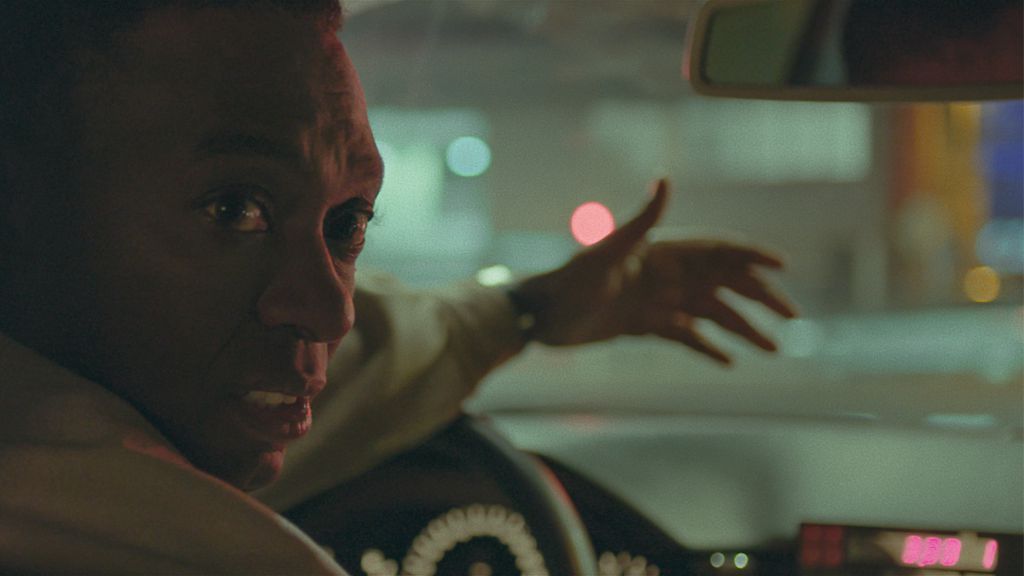Malina Nwabuonwor and Alexander Reinberg study in Film Academy Vienna’s Screenplay Writing and Dramaturgy class. The two young authors spoke with mdw Magazine about how they got started writing, their takeaways from experiences studying abroad, and where they find inspiration for their work.

She could’ve taken over a funeral home or a carpentry business from her family—but instead, Malina Nwabuonwor felt called to the big city to study at Film Academy Vienna. “As someone born with an unpronounceable name in an Austrian one-horse town, all I ever wanted was one thing: to set out into the wide world.” And until that became possible, she brought the wide world home in the form of stories—which she told mostly to herself. “Telling stories, movies, and writing have all fascinated me as long as I can remember,” she says. In 2014, she decided to apply to the Screenplay Writing and Dramaturgy Programme in Vienna. “And I also began reading and consulting for a production company on the side.” Her insatiable curiosity about other worlds eventually took her to Mexico City’s Centro de Capacitación Cinematográfica in 2017. “There, I learned from bold forms of storytelling and new perspectives, and I also got an understanding of how one celebrates life on the ‘Day of the Dead’. After all, to write is to discover,” she says of her year abroad. While the Viennese training programme features close links between all areas of film production, with beginning students required to dip their toes into them all, the screenwriting program in Mexico was highly specialised. “From Monday to Friday, it was pure screenplay instruction from 4 to 10 p.m. The mornings were free for writing.” Alongside arthouse cinema, the coursework featured a strong focus on modern and classical theatre as well as TV series. And today, she says that her intense time there was above all good exercise for her writing muscles. “I finally dared to get into theatre a bit more and was also confronted with entirely different kinds of writing—like for telenovelas.” While Austria’s cinematic output is heavy on “auteur film”, Mexico is a country where “writer’s rooms”—spaces where several authors collaborate on a screenplay—have long been commonplace. “And in Mexico’s arthouse cinema, you also notice a strong influence of magical realism,” she remembers from her many visits to the Cineteca, a cinema that she lived next to during her stay there.

Like Malina Nwabuonwor, Alexander Reinberg also spent a year abroad—at the University of Southern California (USC) in Los Angeles: “First off, it needs to be said that everyone, everywhere puts their pants on one leg at a time.” But since USC’s master’s degree programme runs only two years, things did turn out to be far more intense than at the Film Academy. “Per semester, you have to write one or two longer works—feature films or series pilots.” And he got a lot out of USC’s “ fairly classic approach” to the craft, above all because—thanks to the Film Academy—he was able to embed what he learned in an “broad narrative context”.
Alexander Reinberg started writing all the way back in childhood. “It’s always the case that writing also serves as an introspective tool.” At his secondary school in Linz, were he belonged to the English-focused bilingual branch, lots of attention was paid to theatre—so he wrote quite a bit for the stage. It was from a schoolmate with whom he’d made several short films that he ultimately got the idea of applying to Film Academy Vienna. And there, like all beginning students, he first had an opportunity to get to know all the other areas. “A screenplay isn’t, after all, a self-contained work. It’s a set of instructions, a first step towards a movie. And knowing what a camera operator sees or how a director resolves a scene is essential to this craft,” he says in explanation of the connections. “In this light, it’s important to first get a good idea of the various areas of work involved in making a film, work for which you need to create a basis with your writing.” His colleague concurs: “Absolutely, having a chance to explore the other areas is really important. After all, a screenplay is something like a foundation or a blueprint for what comes next. You want to provide the other departments with something they can build on, so you learn to think and write in a more ‘filmic’ way. Nowadays, simple things like shot dimensions or how to compose an interesting image are part of what I take into consideration right when I begin writing a scene.”

For both, real-life experience is something that greatly enriches their work. “As a rule, creativity isn’t something that arises on its own. You always need a certain stimulation, encounter, image, or topic,” is what Alexander has to say about this process. And for Malina, world events, museum visits, and conversations are what generate the most inspiration for her work. “A good story grips me emotionally, is multidimensional, and lives from characters who aren’t simply good or evil. And it knows how to entertain,” says the screenwriter and dramaturge.
Both students already have some initial successes under their belts. Malina was nominated for the First Steps Award in the “Scriptwriter” category and has already received a Startstipendium grant from the Austrian Federal Chancellery as well as the Screenplay Grant of Literar Mechana, Austria’s copyright collective for writers. And Alexander has already presented his short film 37 Grad at numerous festivals. “It is a push in the right direction” and above all a confidence-builder, says Malina, who adds: “The grants and awards also made my financial situation easier and helped me improve my networking in the industry.” Alexander says that he doesn’t quite feel at home on festival stages but did greatly enjoy seeing his completed film “on a cinema screen with perfect sound”—not to mention being able to experience the audience’s immediate reactions.

Screenwriting is a craft that can be learned: “It’s about not giving up, writing lots and lots, and learning to deal with criticism,” says Malina. And Alexander points out how important he thinks it is to continue developing this craft while “still remaining true to yourself at the end of the day.” Talent and luck, though, are two additional factors that help determine where your path as an author takes you. “Put quite generally, the best things you write are the ones to which you totally commit yourself in a way that’s neither calculating nor aimed at achieving any particular effect … where you let go of expectations a bit. It’s then that writing can give you this unbelievable rush,” concludes the young author enthusiastically.

